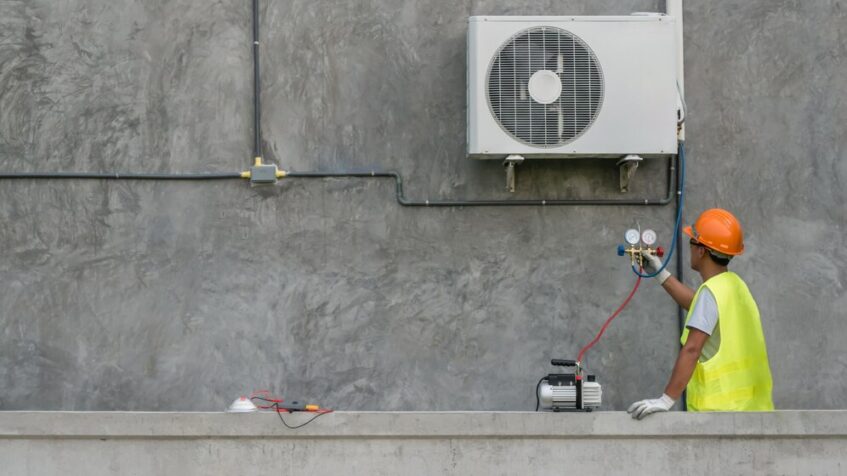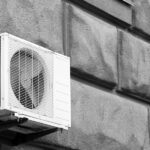
Top Tips for Winter HVAC Maintenance
Top Tips for Winter HVAC Maintenance
HVAC maintenance is crucial year-round, but it’s especially vital during the winter months when your heating system works overtime. Neglecting maintenance can lead to inefficiency, breakdowns, and even health hazards. In this guide, we’ll explore top tips to ensure your HVAC system stays in peak condition throughout the chilly season. From simple DIY tasks to professional inspections, these strategies will help you keep your home comfortable, energy-efficient, and safe during winter’s icy grip. Let’s dive in and prepare your HVAC system for the cold months ahead!
Understanding Winter HVAC Needs
Winter introduces unique challenges for HVAC systems, pushing them to their limits to uphold indoor comfort. Frigid temperatures strain components, potentially worsening existing problems. Recognizing these challenges is vital to preempt breakdowns when heating is paramount. Winter amplifies dust circulation, jeopardizes outdoor units with freezing risks, and taxes systems to maintain warmth.
Grasping these seasonal intricacies empowers homeowners to undertake proactive measures. From enhancing insulation to scheduling professional inspections, understanding winter’s impact equips us to safeguard our HVAC systems, ensuring uninterrupted comfort during the coldest stretches of the year.
Importance of Seasonal Maintenance
Seasonal maintenance is akin to a vital health check-up for your HVAC system, ensuring its readiness to combat winter’s challenges. Through regular inspections and tune-ups, potential issues are pinpointed and rectified before they burgeon into costly repairs or system malfunctions. By upholding the upkeep of your HVAC system, you guarantee steadfast performance while bolstering energy efficiency, elongating equipment lifespan, and upholding indoor air quality.
This investment in seasonal maintenance not only yields long-term cost savings but also instills confidence, knowing your heating system stands fortified against the frosty onslaught of winter, ready to deliver uninterrupted warmth and comfort when it’s needed most.
Common Winter HVAC Challenges
Winter presents significant challenges for HVAC systems, including reduced temperatures and increased usage, necessitating understanding and mitigation to ensure optimal performance and functionality. Let’s explore four prevalent challenges faced by HVAC systems during the winter months:
- Frozen Outdoor Units: Subzero temperatures can cause condensation to freeze on outdoor HVAC units, leading to potential damage and decreased efficiency.
- Increased Dust Circulation: Closed windows and doors trap dust and allergens indoors, leading to heightened circulation within the HVAC system and potentially compromising indoor air quality.
- Overworked Components: HVAC systems work harder in winter to maintain desired temperatures, leading to increased wear and tear on components and a higher risk of breakdowns.
- Poor Insulation: Inadequate insulation can result in heat loss, forcing HVAC systems to work harder and driving up energy costs while also causing discomfort due to inconsistent heating.
Maintenance Tasks
Regular maintenance is the backbone of a well-functioning HVAC system, especially crucial during the demanding winter months. Simple tasks like changing air filters, cleaning vents and ducts, and calibrating thermostat settings can significantly enhance efficiency and avert potential issues. Pre-winter professional inspections are invaluable, enabling early detection and resolution of looming problems, from lubricating moving parts to identifying leaks or corrosion.
These maintenance rituals not only extend the lifespan of your HVAC system but also ensure uninterrupted warmth when temperatures plummet. Prioritizing these tasks is key to enjoying reliable performance and comfort throughout the chilly winter season.
Scheduling Professional Inspections
One of the most critical aspects of winter HVAC maintenance is scheduling professional inspections before the cold sets in. Trained technicians can conduct thorough assessments of your heating system, identifying any potential issues that could hamper its performance during the winter months.
From checking for leaks and blockages to ensuring proper thermostat calibration, these inspections provide peace of mind and can prevent costly breakdowns. By addressing any issues early on, you can avoid the inconvenience of a malfunctioning heater when temperatures plummet and ensure your home stays warm and comfortable all winter long.
Checking and Changing Air Filters
Regularly checking and changing air filters is a simple yet essential maintenance task for your HVAC system, especially in winter. Dirty or clogged filters restrict airflow, forcing your heating system to work harder and potentially leading to increased energy consumption and wear and tear on components.
During the winter months when your HVAC system is running more frequently, it’s crucial to inspect filters monthly and replace them as needed. This not only improves indoor air quality by capturing dust, pollen, and other airborne particles but also helps your heating system operate more efficiently, saving you money on energy bills in the long run.
Cleaning Vents and Ducts
Amidst winter HVAC upkeep, cleaning vents and ducts is a paramount task often overlooked. Over time, these conduits accumulate dust, debris, and potentially mold, impeding airflow and compromising indoor air quality. Regular cleaning of vents and ducts facilitates unrestricted circulation of warm air throughout your home, heightening heating efficiency and averting health risks linked to poor air quality.
Engaging professional duct cleaning services ensures comprehensive elimination of accumulated contaminants, reinstating your HVAC system to optimal functionality. By prioritizing this upkeep, you safeguard not only your system’s performance but also the well-being and comfort of your household during the frosty winter months.
Ensuring Proper Thermostat Settings
Setting your thermostat correctly is crucial for maintaining comfort and efficiency during the winter months. Proper thermostat settings ensure that your HVAC system operates efficiently without unnecessary energy waste. During colder weather, consider setting your thermostat to a lower temperature when you’re away from home to save energy, but be mindful not to set it too low to prevent pipes from freezing.
Investing in a programmable thermostat allows you to automate temperature adjustments according to your schedule, maximizing comfort while minimizing energy costs. Regularly checking and adjusting thermostat settings ensures that your home stays warm and cozy without breaking the bank.
Addressing Heating System Efficiency
Optimizing heating system efficiency is essential for keeping your home comfortable during the winter while minimizing energy costs. Start by ensuring that your heating system is properly sized for your home’s needs to avoid unnecessary energy waste. Regular maintenance, including cleaning and lubricating components, checking for leaks, and replacing worn-out parts, can improve efficiency and extend the lifespan of your system.
Additionally, consider upgrading to a high-efficiency furnace or heat pump to further reduce energy consumption. By addressing heating system efficiency, you can enjoy consistent warmth and lower utility bills throughout the winter months.
Dealing with Frozen Pipes
Frozen pipes pose a significant risk during the winter months and can lead to costly water damage if not addressed promptly. To prevent pipes from freezing, insulate exposed pipes in unheated areas of your home, such as attics, basements, and crawl spaces. During extreme cold spells, keep cabinet doors open to allow warm air to circulate around pipes.
If you suspect that a pipe is frozen, turn off the water supply and apply gentle heat using a hairdryer or heating pad to thaw it slowly. Never use open flames or excessive heat, as this can damage the pipe. By taking proactive measures to deal with frozen pipes, you can avoid potential disasters and ensure uninterrupted water supply throughout the winter.
Protecting Outdoor Units from Elements
Outdoor HVAC units are vulnerable to the harsh winter weather, which can cause damage and reduce their efficiency. To protect them, consider installing a cover specifically designed for your unit to shield it from snow, ice, and debris. Additionally, ensure that the area around the unit is clear of snow, leaves, and other obstructions to allow for proper airflow.
Regularly inspect the unit for signs of damage or wear and tear, and promptly address any issues to prevent further damage. By taking steps to protect your outdoor HVAC unit from the elements, you can extend its lifespan and maintain optimal performance throughout the winter.
Safety Considerations for Winter HVAC
Winter HVAC maintenance comes with its own set of safety considerations that homeowners should be aware of. When performing DIY maintenance tasks, such as changing air filters or cleaning vents, always turn off the power to the HVAC system to prevent electrical accidents. Additionally, be cautious when using space heaters or alternative heating sources to avoid fire hazards and carbon monoxide poisoning.
If using a fireplace or wood stove, ensure that chimneys and flues are clear of debris and properly ventilated. By prioritizing safety throughout your winter HVAC maintenance routine, you can protect yourself and your family from potential hazards.
Benefits of Regular Maintenance
Regular maintenance is the key to keeping your HVAC system running smoothly and efficiently throughout the winter and beyond. By scheduling seasonal tune-ups and inspections, you can identify and address minor issues before they escalate into major repairs, saving you time and money in the long run. Additionally, a well-maintained HVAC system operates more efficiently, reducing energy consumption and lowering utility bills.
Improved efficiency also means a reduced environmental impact, as less energy is needed to heat your home. Finally, regular maintenance helps prolong the lifespan of your HVAC system, maximizing your investment and ensuring long-term comfort and reliability.
Implementing these top tips for winter HVAC maintenance can ensure your system operates efficiently and effectively throughout the chilly season. By staying proactive with tasks like changing air filters, scheduling professional inspections, and cleaning vents and ducts, you can optimize performance, minimize energy costs, and maintain a comfortable indoor environment.
Remember, your HVAC system is an investment in your home’s comfort and value, so it’s crucial to prioritize its care. For expert assistance and personalized maintenance plans, contact Cool Factory, Inc. at (703) 713-5113. Located in Sterling, VA, our team is dedicated to keeping your HVAC system in top-notch condition year-round.






